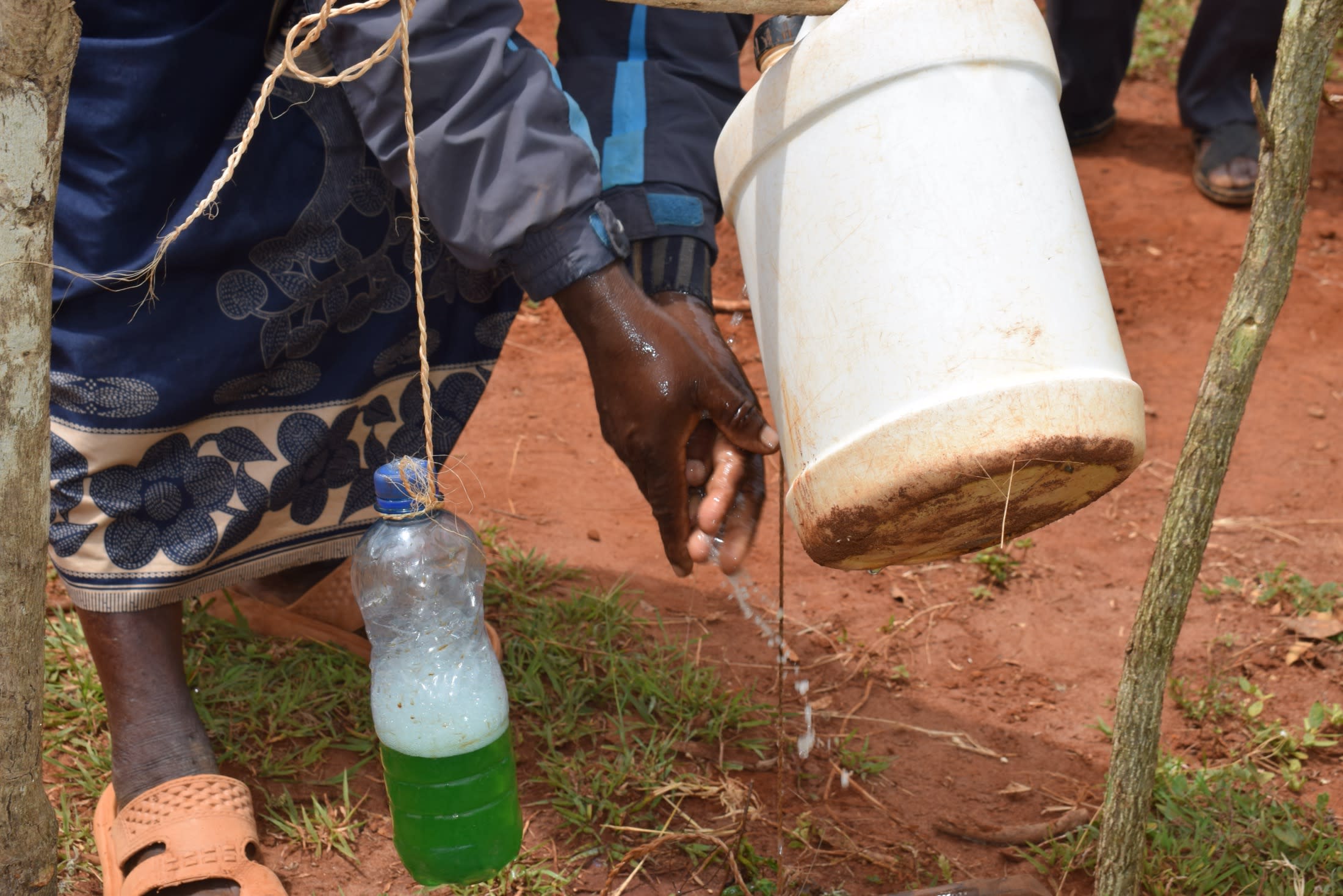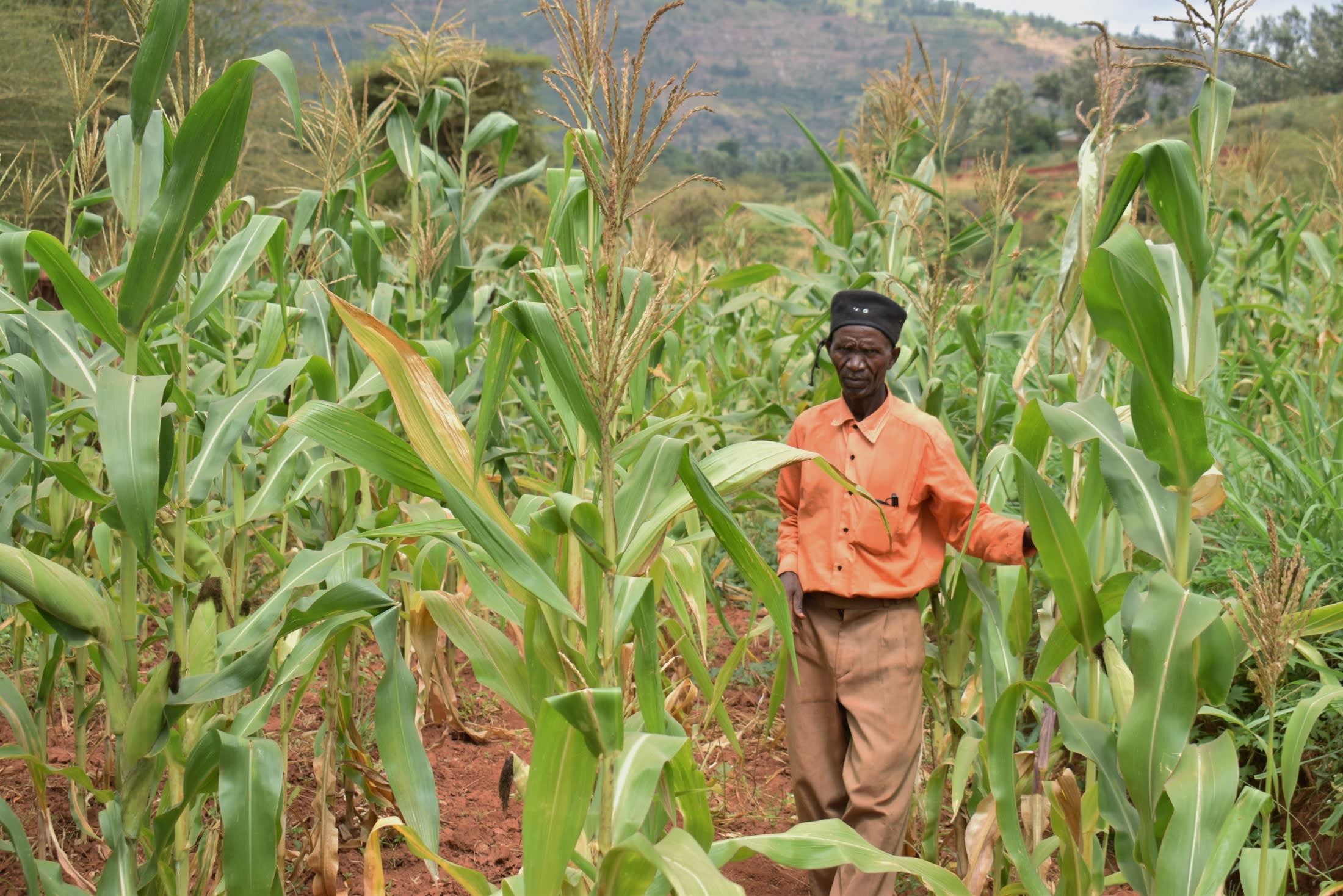Mbuuni Self-Help Group was formed in 2010 and currently has a huge membership of 254 people; 194 men and 60 women. The group is located in Mbuuni Village, which has a population of 1,978 people.
The average household size is five, and the average age of the group members is 45. The main sources of income are farming and casual labor - if one doesn't own their own farmland, they'll look for work on someone else's farm. Most people earn less than 10,000 shillings ($100) each month.
This self-help group has been involved with us for two years now, and their aim is to bring much-needed water to their region. We stand alongside them, providing the tools and finances needed to achieve this goal.
To see all of Mbuuni Self-Help Group's undertakings, click here.
Water
Mbuuni Village has a population that's nearing 2,000 people - and they all used to rely on just one borehole. This was installed by the Machakos County government, which would charge people for each jerrycan of water collected from the pump.
Those who couldn't afford that water, dug holes in the sandy bed of Thwake River to access its water.
There isn't only one clean water source in Mbuuni, thanks to our partnership with self-help groups. We built a sand dam and hand-dug system that supplies clean water.
This water isn't free. The fees paid by users are kept in the community for pump maintenance and development opportunities. But with such a large population, these two wells are not enough. One water point can only reasonably serve a few hundred people. That's why multiple projects in one community is important.
To learn more, click here.
And there are still families living a great distance away. As of now, many families spend a lot of time walking to and waiting at these clean water points.
Thus, we have accepted the self-help group's application to construct two more sand dams and well systems in Mbuuni.
Sanitation
Continuing hygiene and sanitation training is part of our relationship with Mbuuni. They're doing a great job implementing everything they've learned, including building and using latrines, bathing shelters, and handwashing stations.
There's 100% latrine coverage, and almost everybody has a bathroom for washing every morning. Almost half of household have a hand-washing station called a "tippy tap," a jerrycan that pours water as a string tilts it.
About 75% of people are treating their water before drinking it. Though water from these wells is clean when gathered, it should be treated after transportation and storage.
Here's what we're going to do:
Review
We recently visited over a dozen households to check on sanitation and hygiene standards. One of the most impressive households we visited was that of Mrs. Nduku Mutua (pictures on this page). These visits inform our trainers on what they might need to review with the community during their next trainings. We will continue to teach about the importance of handwashing, for though Mrs. Mutua has a tippy tap, many neighbors still don't.
Hand-Dug Well
This particular hand-dug well is being built adjacent to this group’s ongoing sand dam project (click here to see), which will supply clean drinking water once it rains. We have supplied the group with the tools needed for excavation. With the guidance of our artisans and mechanics, the excavated well will be cased, sealed with a well pad, and then finished with a new AfriDev pump.
Excavation takes a month or more on average, depending on the nature of the rock beneath. Construction of the well lining and installation of the pump takes 12 days maximum. The well will be lined with a concrete wall including perforations so that once it rains, water will filter in from the sand dam.
This well will be located in Mbuuni Village, and will bring clean water closer to families having to walk long distances for their water.
This project is a part of our shared program with Africa Sand Dam Foundation (ASDF). Our team is pleased to provide the reports for this project (edited for clarity) thanks to the hard work of our friends in Kenya.

 Protected Dug Well
Protected Dug Well
 Rehabilitation Project
Rehabilitation Project



























